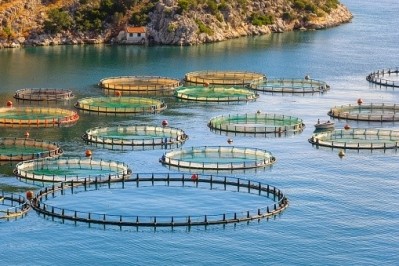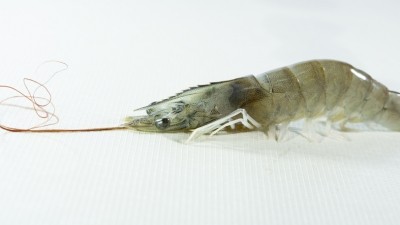Insights from 15 years research on use of yeast and probiotics in shrimp diets

This shifting landscape demands innovation and adaptation from farmers to sustain their businesses. In this new reality, prioritizing health and adopting a revised approach to functional feed management are critical, say experts at Phileo by Lesaffre.
The French company has launched Program Aquasaf Shrimp, a guide focusing on fermentation solutions for shrimp farming.
Drawing on over decade of research and development in yeast, bacteria, probiotics, and postbiotics, the program highlights case studies conducted with various institutes and commercial partners globally. It complements the firm’s previously released program for tilapia.
“For 15 years, we've been actively engaged in shrimp trials. Despite our extensive research efforts, we lacked a comprehensive document that compiled all the various trials we have done with our products. This marks the first occasion where we've consolidated all we've learned into one resource,” Darodes de Tailly, the Vietnam based global program manager for aquaculture, at Phileo by Lesaffre, tells FeedNavigator.
Comprising three main pillars, Program Aquasaf Shrimp addresses critical challenges in intensive shrimp farming including mortalities from Early Mortality Syndrome (EMS) or White Spot Disease (WSD), inconsistent growth and feed performance due to chronic oxidative stress and gut dysbiosis, as well as the industry's reliance on marine ingredients and antimicrobial substances, he reports.
The shrimp market has experienced significant growth over the past 20 to 30 years, leading to the emergence of numerous additive solutions from various origins, all purporting to address similar issues, remarks Alban Caratis, global aquaculture manager, at Phileo by Lesaffre, who is also based in Vietnam.
“Despite the market's sophistication, the challenges have become increasingly complex. It's crucial to offer greater knowledge and transparency regarding the mode of action behind products, and that's precisely the goal of our program.”
A manual serves as a guide for users, providing detailed insights and guidance on implementing the yeast, bacteria, probiotics, and postbiotics products.
Disease management
Farming shrimp is becoming increasingly complex. With each passing year, new diseases emerge, notes Darodes de Tailly.
“Moreover, farmers are increasingly turning to intensification methods on their farms, which can exacerbate stress-related issues. Additionally, when problems arise, they escalate rapidly. As a result, shrimp farming is becoming more technically demanding.”
When asked, farmers often prioritize disease management as one of their top concerns, he says.
He outlined the company's success in controlling mortality rates, particularly in shrimp, using its yeast cell wall product, Safmannan. The product is formulated to enhance disease resistance in animals. Trials, according to the aquaculture lead, have demonstrated the efficacy of the yeast cell wall product “in enhancing the immune system of shrimp, particularly in combating WSD and EMS, which is caused by Vibrio pathogens."
Looking to gut health, Darodes de Tailly outlines how ActiSaf, the company’s live yeast strain, is designed for application in feed or water for preventing or mitigating chronic gut disorders, while its MicroSaf probiotic product was developed to maximize modulation of the microbiota.
“We have been conducting ongoing trials with both products, which have exhibited promising results in managing gut health in intensive shrimp farms, particularly in addressing potential gut disorders. It is crucial to focus on restoring gut integrity in shrimp. Given their nature as bottom feeders, shrimp are consistently exposed to pathogens. Therefore, it is imperative to ensure the maintenance of the gut, especially the hepatopancreas, as it significantly impacts both shrimp survival and feed efficiency. Damage to the gut compromises the absorption of feed nutrients."
Trials focused on regional challenges
The challenges vary depending on the shrimp production system and the farm location, he continues. “That is why we conduct separate feed validation studies, trials that are tailored to specific locations or types of farms. So, while our global R&D efforts are based in Europe, we also ensure that the solutions are validated to meet the specific needs of each market."
In summary, the trial results indicate benefits for shrimp health, comments Caratis “These benefits include direct advantages in pathogen control as well as indirect positive effects related to health, particularly in mitigating the negative impacts stemming from a range of stressors such as higher densities in shrimp farming, or the evolution in diets with a shift to more plant ingredient-based feeds."















